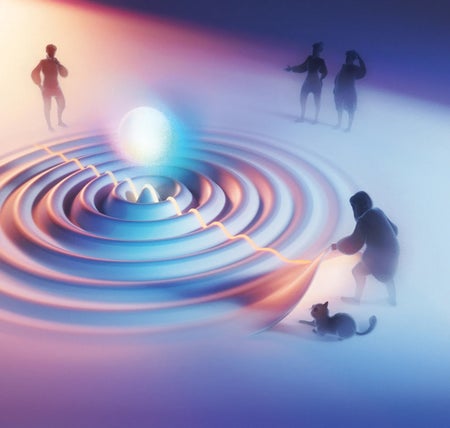
Physicists Can’t Agree on What Quantum Mechanics Says about Reality
A survey of more than 1,000 physicists finds deep disagreements in what quantum theories mean in the real world
First published in 1869, Nature is the world's leading multidisciplinary science journal. Nature publishes the finest peer-reviewed research that drives ground-breaking discovery, and is read by thought-leaders and decision-makers around the world.

Physicists Can’t Agree on What Quantum Mechanics Says about Reality
A survey of more than 1,000 physicists finds deep disagreements in what quantum theories mean in the real world
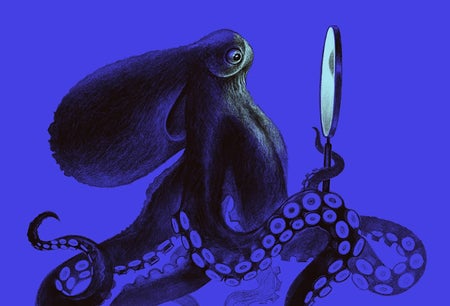
How to Detect Consciousness in People, Animals and Maybe Even AI
Insights from human brains could inform how scientists search for awareness in all its possible forms

Allergens May Make Us Cough and Sneeze by Poking Holes in Airway Cells
The immune system senses damage to cell membranes caused by pore-forming proteins and mounts a response

Miniature Neutrino Detector Promises to Test the Laws of Physics
A relatively small detector caught neutrinos from a nuclear reactor using a technique known as coherent scattering
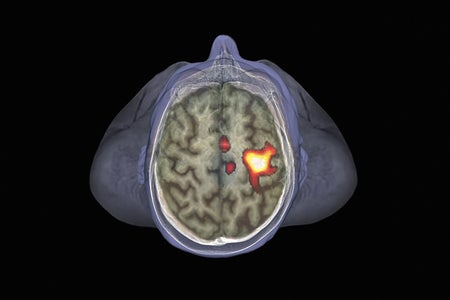
The Brain Fires Up Immune Cells When Sick People Are Nearby
When people viewed virtual avatars with coughs or rashes, their brain triggered an immune response
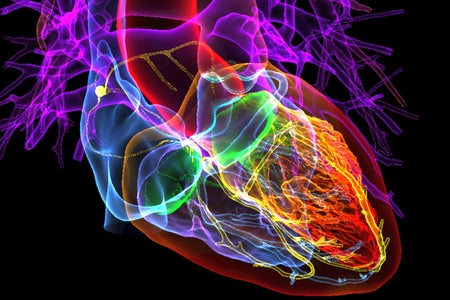
Organs Age in Waves Accelerating at 50 Years Old
Aging is a complex process that plays out differently across different organs, according to growing evidence
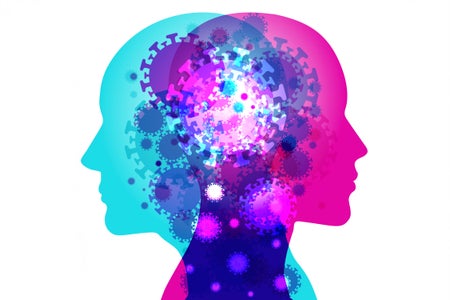
The Pandemic Aged Everyone’s Brain—Even in Healthy People
A study of nearly 1,000 people showed that brain aging was not linked to infection status

The Biggest Trial Yet Confirms Four-Day Workweek Makes Employees Happier
The largest yet study on a four-day workweek included 141 companies, 90 percent of which retained the arrangement at the end of the six-month experiment

NASA Staff Rebuke White House Cuts in Rare Public Dissent
A declaration of dissent from past and present NASA employees warns that science and safety are at risk and joins similar documents from staff at other federal science agencies
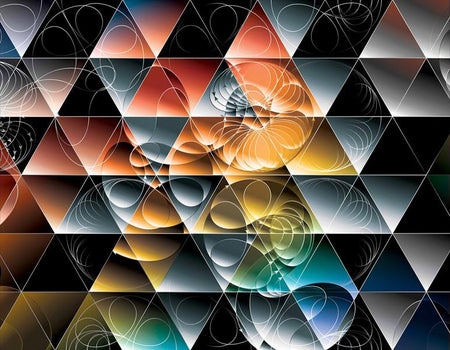
Breakthrough Proof Brings Mathematics Closer to a Grand Unified Theory after More Than 50 Years of Work
The Langlands program has inspired and befuddled mathematicians for more than 50 years. A major advance has now opened up new worlds for them to explore
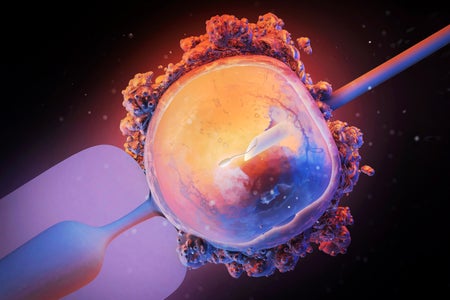
Eight Healthy Children Born Using Three-Person IVF Technique
Long-awaited results of a three-person IVF technique suggest that mitochondrial donation can prevent babies from inheriting diseases caused by mutant mitochondria

Brain Science Reveals Why Waking Up Can Be Such a Struggle
Neuroscientists have found that the brain can wake up in different ways, explaining why some mornings feel like a dream and some feel like a disaster
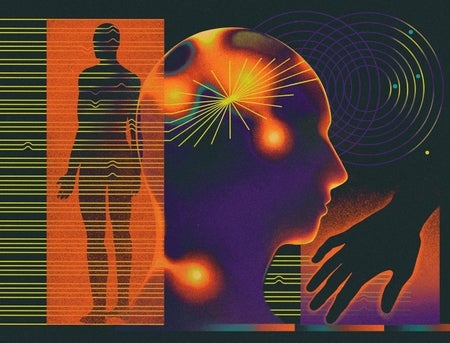
Smart Brain-Zapping Implants Could Revolutionize Parkinson’s Treatment
New deep-brain-stimulation implants for Parkinson’s disease can listen in on brain waves and adapt to treat symptoms. Can this approach target other conditions?
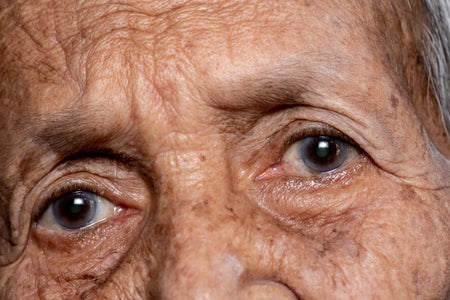
Aging Rates Vary by Country. Politics Might Be Why
Social inequality and the decay of democratic institutions are linked to accelerated aging, but education seems to slow the process
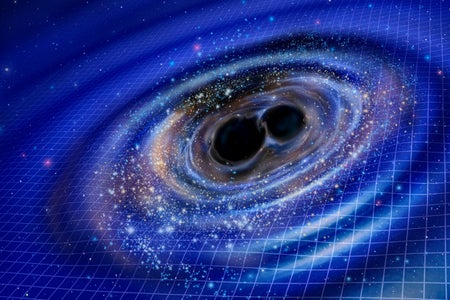
Monster Black Hole Merger Is Most Massive Ever Seen
A U.S. gravitational wave detector spotted a collision between fast-spinning “forbidden” black holes that challenge physics models

Combatting Toxic Stress with Science
Better assessment of stress and tailored approaches to combat it could give clinicians the tools they need to fend off lasting damage to health
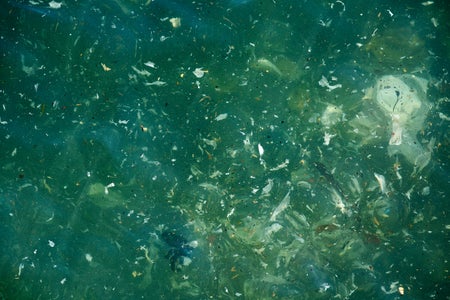
Most Plastic in the Ocean Is Invisible—And Deadly
Nanoplastics—particles smaller than a human hair—can pass through cell walls and enter the food web. New research suggests 27 million metric tons of nanoplastics are spread across just the top layer of the North Atlantic
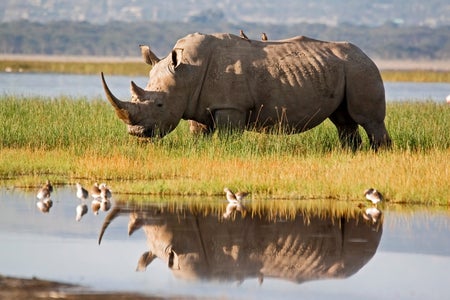
Ancient Tooth Proteins Rewrite the Rhino Family Tree—Are Dinosaurs Next?
Molecules from the 20-million-year-old teeth of a rhino relative are among the oldest ever sequenced, opening tantalizing possibilities to scientists

‘Science Fair’ of Lost Research Protests Trump Cuts
A protest at a congressional office building highlighted future research findings that vast cuts to science will erase
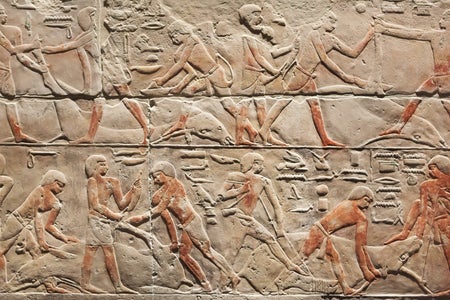
4,800-Year-Old Teeth Yield First Human Genome from Ancient Egypt
Forty years after the first effort to extract mummy DNA, researchers have finally generated a full genome sequence from an ancient Egyptian, who lived when the earliest pyramids were built
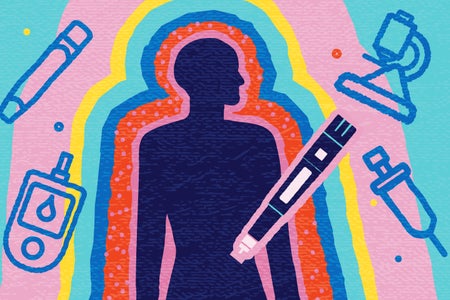
Could China’s New GLP-1 Drugs Beat Out Ozempic?
GLP-1 drugs currently being tested in China target complications associated with obesity such as heart disease, fatty liver disease and type 2 diabetes
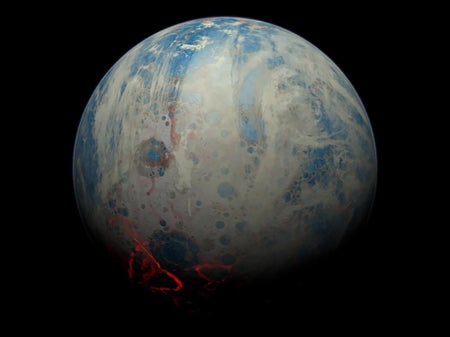
Rocks in Canada Are Confirmed as World’s Oldest
In 2008 scientists reported that rocks in Canada were the world’s oldest. New data appear to confirm this contested claim
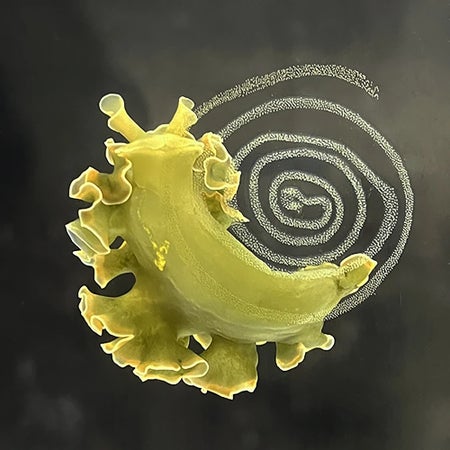
This Solar-Powered Slug Steals Photosynthetic Machinery for Emergency Food
A certain species of sea slug steals chloroplasts from algae and houses its contraband in special organelles that it can raid for food in times of need

Does Using ChatGPT Change Your Brain Activity? Study Sparks Debate
Scientists warn against reading too much into a small experiment about ChatGPT and brain activity that is receiving a lot of buzz